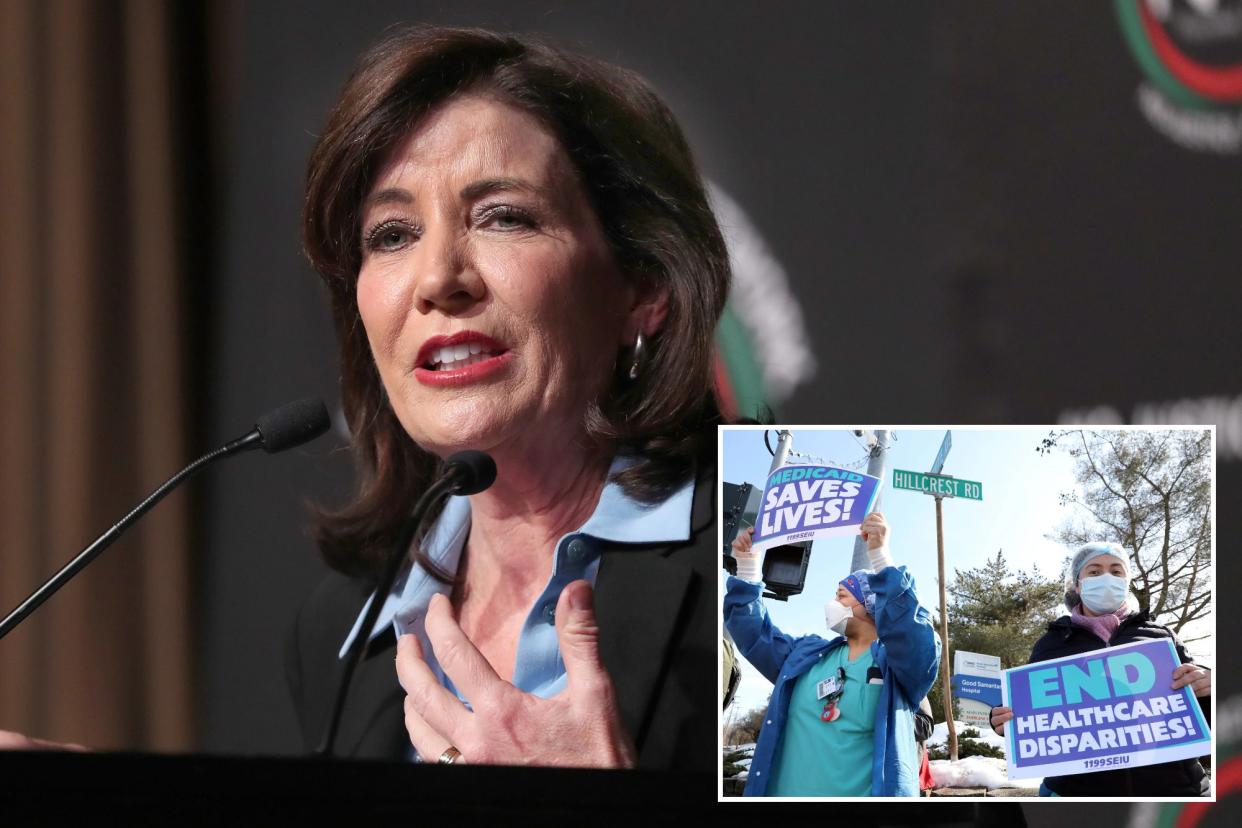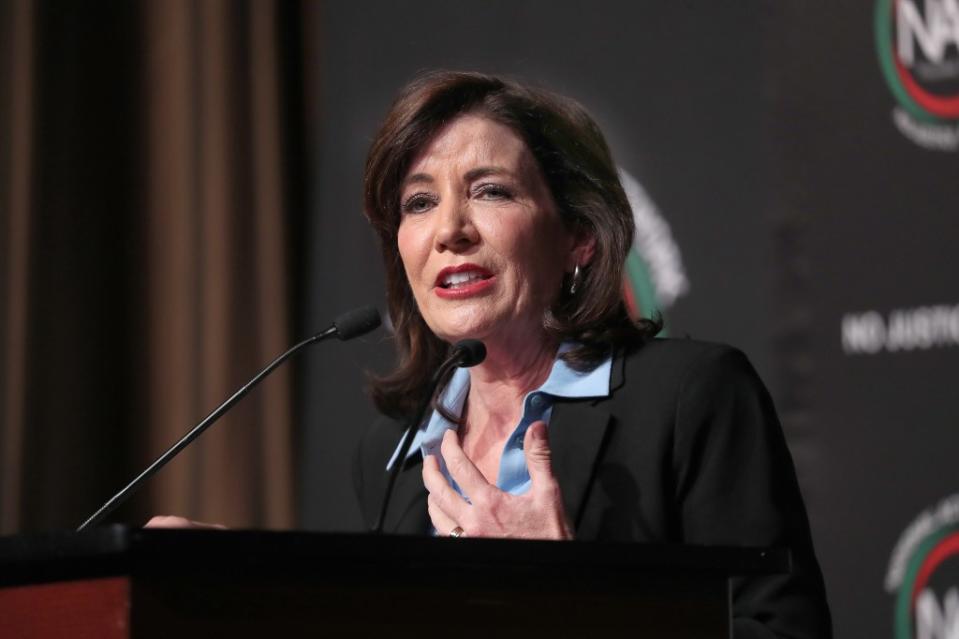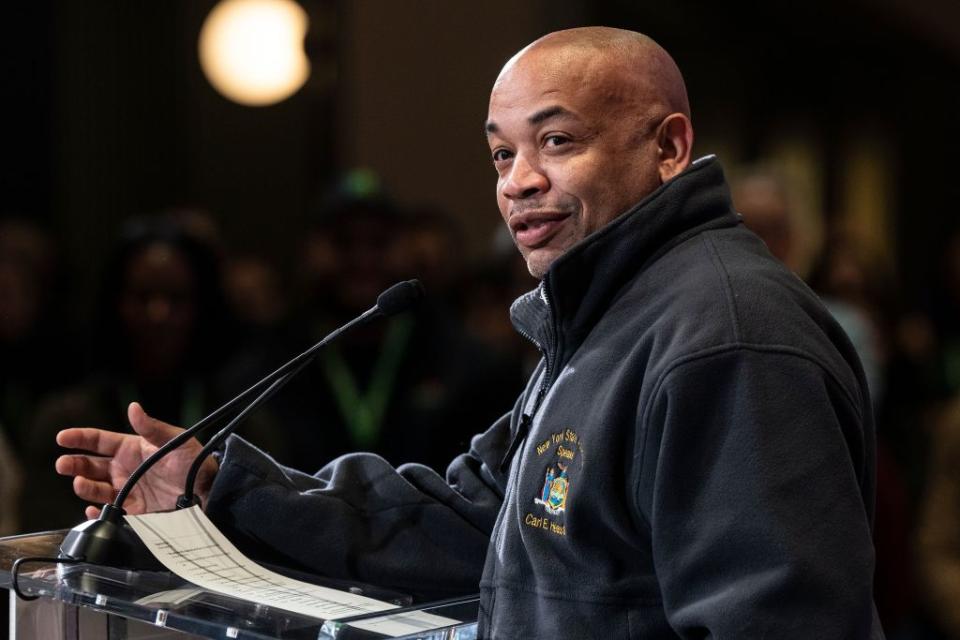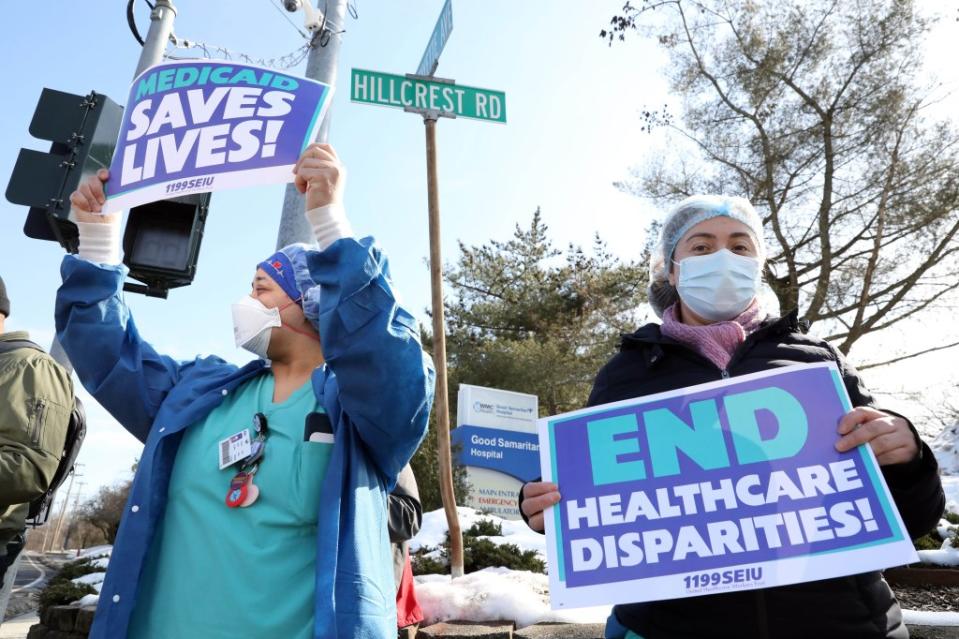Critics furious over Hochul, Heastie plan to crack down on NY’s $8 billion home care Medicaid program: ‘Recipe for corruption’

- Oops!Something went wrong.Please try again later.
- Oops!Something went wrong.Please try again later.
Critics are furious about Gov. Kathy Hochul and state Assembly Speaker Carl Heastie’s new plan to crack down on New York’s allegedly fraud-ridden $8 billion Medicaid home care program.
The governor and Heastie (D-Bronx) are said to be in agreement on overhauling the Consumer Directed Personal Assistance Program — which allows New Yorkers to get paid to take care of loved ones — as part of ongoing state budget talks.
The program operates using hundreds of businesses and nonprofits that essentially work as payroll agents between Medicaid and CDPAP caregivers with minimal oversight.

The proposal said to have been struck by Hochul and Heastie would get rid of the unchecked middlemen, known as fiscal intermediaries, and instead employ one firm handpicked by the state Department of Health.
But home care advocates and some lawmakers railed that this will do nothing to stop reported fraud and abuse — and questioned how it would result in savings for the massively expanding program.
“They’re taking an extreme reaction instead of fixing the problem,” Assemblyman Ron Kim (D-Queens) told The Post on Thursday.
“The state should not try to fix broken markets (which the state created) by creating a mega-monopoly system,” Kim said on X.
“Picking one winner sounds like a recipe for corruption.”
Over half a dozen sources confirmed that the firm PPL Inc., which describes itself as a “financial management services company” on its website, is being seriously discussed as a candidate to take over as the lone fiscal intermediary that would bill Medicaid and pay CDPAP caregivers.
The company did not return a request for comment.

“Despite repeated evidence that shows tens of thousands of workers will go without pay and tens of thousands of disabled and elderly New Yorkers will lose services, they are supportive of the move to a single FI,” Bryan O’Malley, executive director of Consumer Directed Action of NY, wrote to The Post in a statement.
Several sources familiar with New York health care policy believe it would be possible to grant the company tapped by the DOH the contract without a public bidding process.
Critics called into question the ethics of handing a single firm a multibillion-dollar oversight, likely without a procurement process.
The program grew to $7.5 billion, split evenly between the state and federal governments, in 2022 according to DOH figures.

In her budget proposal earlier this year, Hochul had floated measures aimed at slowing massively soaring costs in the program.
She had pushed for a process to rein in what are estimated to be over 700 fiscal intermediaries by requiring they first receive approval and be subject to oversight by the DOH.
The governor also wanted to slash an additional state-mandated pay boost that CDPAP caregivers received on top of their minimum wage — but sources said Hochul has agreed to drop the proposed cut, estimated to save $200 million, as part of the negotiations.
Home care advocates rallied in the Capitol, staying well after lawmakers wrapped up work Thursday, and camped outside Hochul’s office to demand she reject the proposal.
“We’re trying to figure out a way to make the program run more efficiently and make sure that people get the care they need,” Heastie told The Post earlier, while exiting a meeting with Hochul and state Senate leader Andrea Stewart-Cousins (D-Yonkers).

